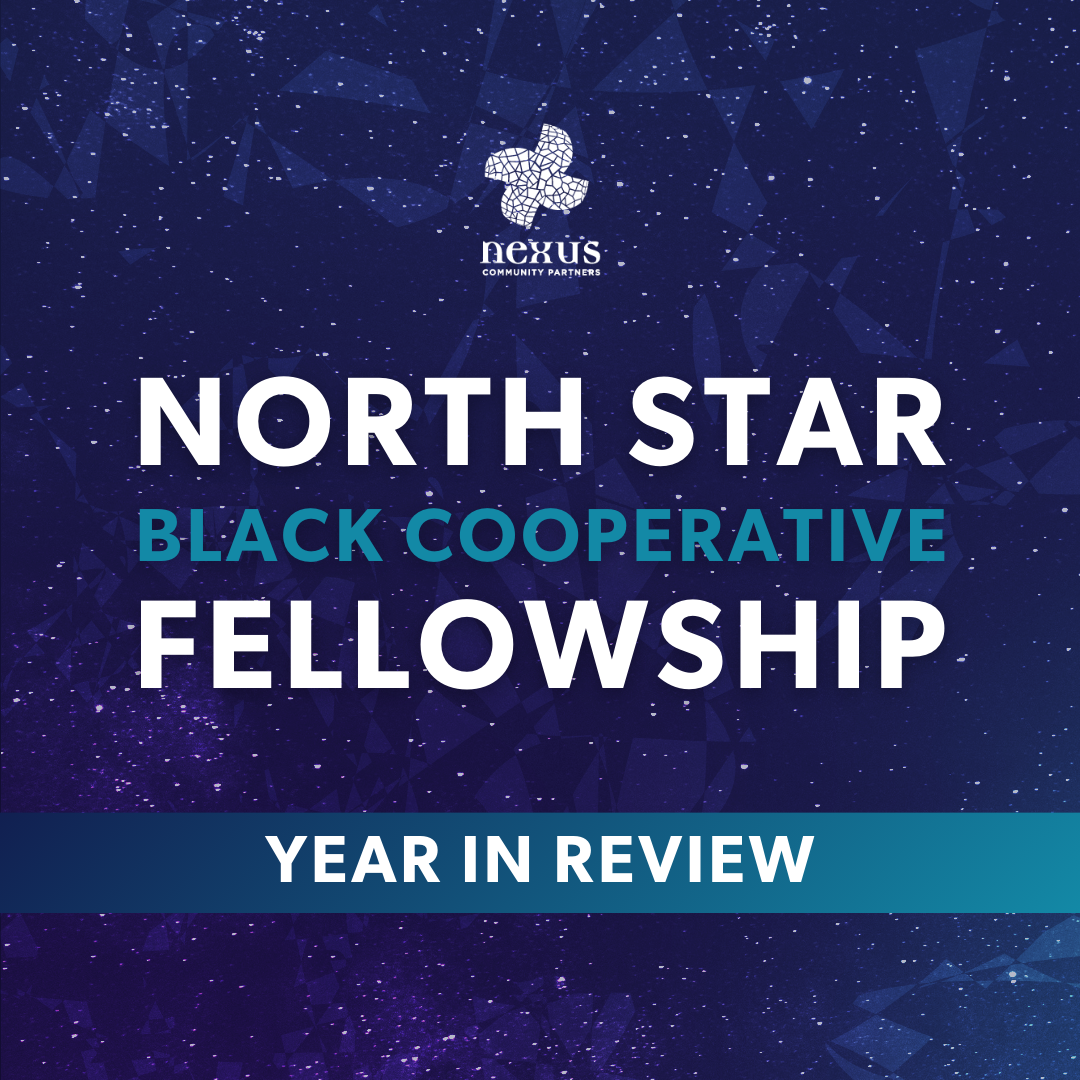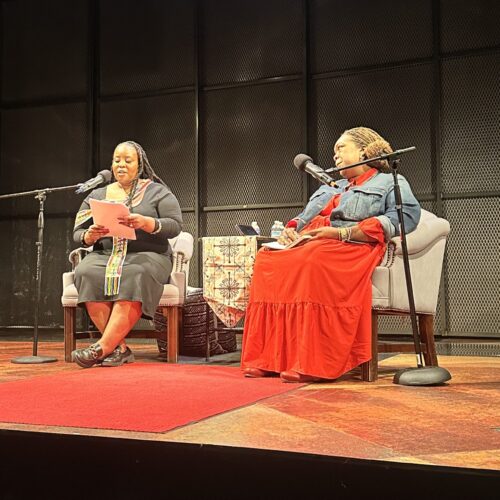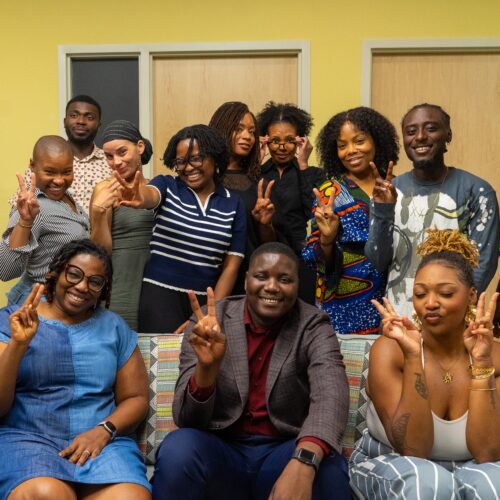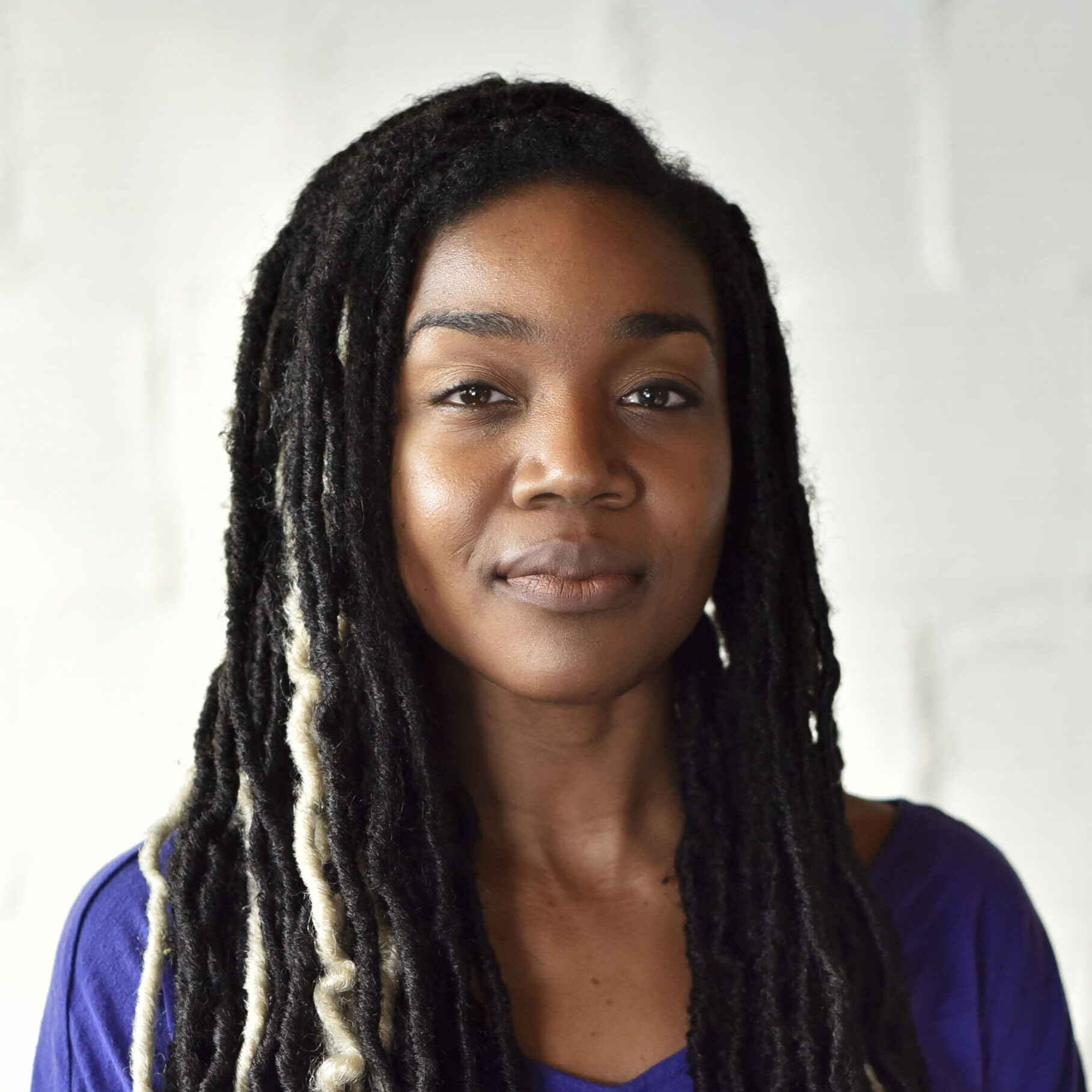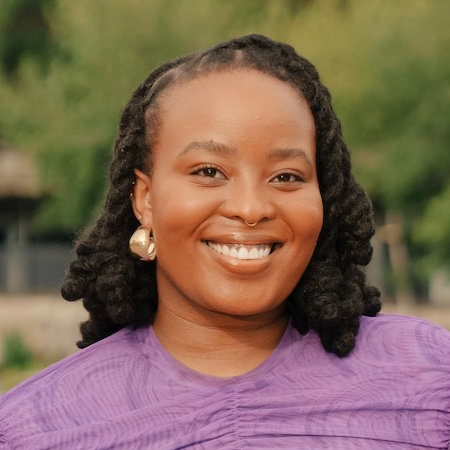How It Works
Curriculum
The North Star curriculum grounds fellows in Black cooperative economic history locally and nationally, challenges them to analyze and rethink capitalism, and supports them in building their own cooperatives, leadership skills, and networks.
As a cohort, fellows explore and receive:
- Grounding in the history of Black cooperative economics in the US, and history of cooperation and Black feminism
- Cooperative skills and tools, like governance, decision-making structures, and conflict resolution
- Access to alumni funds post-fellowship
- Support in designing and creating a strategy for a cooperative economic project
- A $1,000 stipend for participating in the fellowship
Every part of North Star is led by Black folks and is centered on Blackness. From the design of each session, including altars and music, to the food we provide, like K’s Revolutionary Catering, we are intentional about creating Black space. Our trainers have included the NSBCF co-founders Danielle Mkali and LaDonna Redmond Sanders’ co-op 101, Black co-op history, and Black feminism in the cooperative movement and more; Autumn Brown on conflict resolution; Dr. Rose Brewer on rethinking capitalism; and other cooperative developers.
Who makes a great North Star Fellow?
- You are interested in learning and reclaiming the history of the descendants of enslaved Africans’ cooperative economic legacies so that you can better understand and bolster Black economic cooperation today.
- You have been dreaming about or already belong to a cooperative with majority Black membership and majority Black leadership, with accountability to the diverse Black communities in the Twin Cities.
- Your co-op does not need to be fully operational to be a good fit for North Star. But, you do need to have established relationships with each other as leaders and already be working in cooperation to advance your co-op idea.
- There are two or more leaders or members with decision-making power who are committed to participating in the fellowship together, and the majority of that group is Black.
Commitment
2025 – 2026 Program Dates
- Orientation: Thursday, Oct. 2, 5:30 – 7:30 pm (hybrid)
- Session 1: Saturday, Oct. 4, 10 am – 2 pm (hybrid)
- Session 2: Saturday, Oct. 25, 10 am – 2 pm (hybrid)
- Session 3: Saturday, Nov. 15, 10 am – 2 pm (virtual)
- Black Study Session 1: Wednesday, Dec. 3, 5 – 7 pm (virtual)
- Session 4: Saturday, Dec. 6, 10 am – 2 pm (virtual)
- Session 5: Saturday, Jan. 24, 10 am – 2 pm (virtual)
- Session 6: Saturday, Feb. 7, 10 am – 2 pm (virtual)
- Session 7: Saturday, March 7, 10 am – 2 pm (virtual)
- Session 8: Saturday, March 28, 10 am – 2 pm (virtual)
- Session 9: Saturday, April 11, 10 am – 2 pm (hybrid)
- Black Study Session 2: Wednesday, April 29, 5 – 7 pm (virtual)
- Presentations: Saturday, May 2, 10 am – 2 pm (hybrid)
- Graduation: Wednesday, May 6, 5:30 – 7:30 pm (hybrid)
